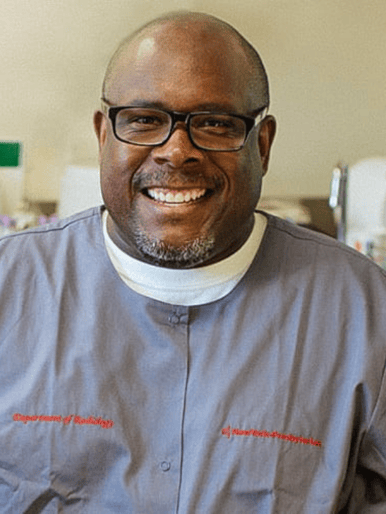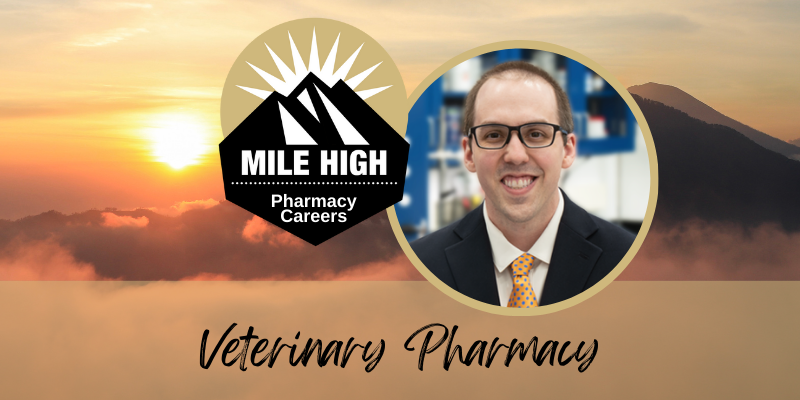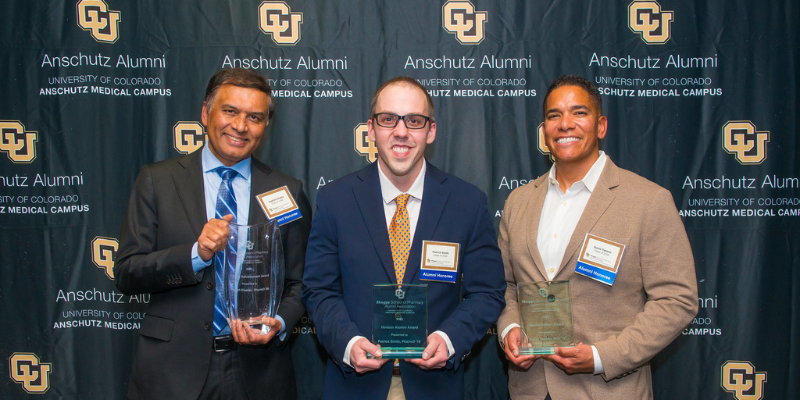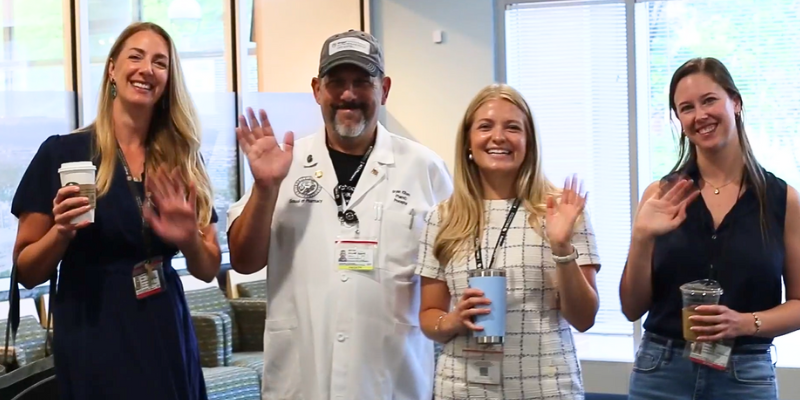Dr. Corey Craig doesn’t miss a beat when it comes to balancing his pharmacy career with his love of music. During a recent interview, Corey shared his thoughts on pursuing a career in pharmacy and provided insight on managing the time as a nuclear pharmacist and a professional DJ.
Q. Where are you currently in your pharmacy career?
A. As far as my pharmacy career goes, I was doing oncology since 2006 at New York- Presbyterian. At the tail end of pharmacy school, I needed to set myself up to be available for rotation and my training in pharmacy also included my nuclear pharmacy training while I was in school and I really enjoyed nuclear pharmacy. As a fluke, I mentioned it to someone in the chemo pharmacy and was told the radiology department was looking for a nuclear pharmacist. This was unheard of, so I jumped at the position because it freed me up for the rotation part of the clinicals. Then I just stayed there. It’s what made me move to New York so long ago and it's just nice to be back in that environment.
Q. What does a typical day look like for a nuclear pharmacist?
A. At this particular setting, we don't do enough volume to make the kits for each test at the pharmacy, so we order doses from one of the companies outside of the city and they're calibrated for certain times of day based on when the patient comes in. When I come in the morning, those cases are ready to go; the patients start arriving. My job is to make sure the patient's dose matches the drug written. I have to calibrate the dose to be a certain amount of radiation based on the time the patient arrives. They may have a 10:30 appointment but come in at 10:45. I have to make sure they're getting just the right amount of radiation for the scan that’s about to happen. Most of the items I work with are specific. They're labeled with radiation, but that particular drug might go to the bone and they use that to see if there's any metastasis for cancer patients. The drugs are specific to the organ they want to image and it's already labeled with radiation when I receive it. My day is calibrating the doses closer to when the patient arrives because the doses expire. They have a half-life of six hours, so you have to be precise on what the patient actually receives.
Dr. Corey Craig in his element at New York-Presbyterian
Q. What influenced you to choose pharmacy as a career path?
A. As a kid, I remember my mom going to the pharmacist more than taking me to a doctor. She developed a special relationship with the pharmacist in the neighborhood where I lived and I remember feeling better because he made me feel better and made me feel comfortable with what was being prescribed. Even with him suggesting things over the counter, I just have a memory as a child of feeling better because the pharmacy guy told my mom what to get for me and it worked. I had a less comfortable situation when we’d see a doctor. I associated the pharmacist with a more pleasant approach to feeling better versus the doctor. Later on, there was a program at my high school that was trying to make sure more minorities got involved in healthcare professions. They connected us with African American physicians, dentists, pharmacists, and plastic surgeons which we shadowed. We got to see all the different types of practices to decide if we wanted to do it. Sure enough, when I went to visit the pharmacy, that feeling was back again that I had as a kid and I decided this was something I wanted to do.
Q. What was your motivation for starting the online PharmD program through the Distance Degrees and Programs Office?
A. I've been a pharmacist, working, graduated and licensed, since ‘95. The funny story is I had actually talked a friend of mine--another pharmacist that I worked with at the time--into doing this remote PharmD program and life got in the way. We went to different pharmacies. I just couldn't finish it. Actually the DJ stuff blew up, so I couldn't do both. I kept saying I'll get back to it and it didn't come back into my mind to finish until about 2015. I was at a doctor's office for my annual physical and the same pharmacist that I talked to about finishing the program walked in as the drug rep. He asked if I ever finished. I told him I had just decided to go back and finish. Sure enough that day, I called the School and was filling out the application. The person I spoke with laughed at me so hard on the phone because I was still in the system. It was nine years later and I'm still in the system. All he had to do was press a button and I was back in the program. Even with the DJ gigs and travel, I was in a better position to finish. I'm very thankful that was still afforded to me instead of having to start over. I wasn't that many classes into the program, but it could have totally changed by the time I came back. Luckily I was able to work through it later on in life and finish.
Q. What appealed to you about the CU Pharmacy program?
A. I made a promise to myself that I would always stay in a competitive situation with the pharmacy degree. I started to notice that certain management at the hospital would talk more about people getting the PharmD and the older pharmacists not having it. It almost felt like he was talking down to us and I didn't like that feeling. So I said, “I will show you. I'll go get it.” I just want to make sure I'm always staying competitive and always have the proper education that I need to do the job.
Q. What was your student experience like going through the program?
A. I had originally enrolled in 2006 and that's when the DJ work started to take off. I got through maybe one semester and decided I couldn’t do all this right now. The positive influence of the peer pressure I had with my coworker wasn't there when we split off to work in different pharmacies. Then I started working in chemo that same year. It turned out to be busier than I thought. I decided, once the chemo work stabilized, I’d come back to finish the PharmD. The next nine years were heavy in chemo work and my patient load kept building, The DJ work started to take off and I started travelling a lot more. It all snowballed together. Luckily, I found a way to manage my time better. The travel for DJ gigs wasn't as insane and I could manage it. There were times when I would dial into a class while in Sydney, Australia for Mardi Gras in the earliest hours of the morning the next day. I’d have to calculate what time it was tomorrow so that I could sit in on class in Colorado. It was so odd, but I did it.
Q. What was it like balancing the pharmacy job, your DJ work, and your education?
A. By the time I came back to the program, there was a time when I would DJ on the weekend and work at the hospital three days a week. The schedules would never overlap where I’d be dragging myself into work because I DJ’d the night before. Luckily, things slowed down with the DJ work. The way you grow as a DJ is by doing fewer gigs that people look forward to coming to see versus taking it for granted that they can see you next Saturday. The travel gigs took over; the money got better; and I could do fewer gigs while studying. It all worked itself around what I was doing. It was a lot of time management, but I was able to do it. That's one key thing I would advise: make sure you keep yourself on a schedule. I juggled traveling 10,000 miles away from home and keeping up with the coursework and the live-action activities we had to do and it was just all about time management.
Q. What is your proudest moment in the pharmacy profession so far?
A. I'll put it this way and it's actually kind of bittersweet. The peer I mentioned meeting in the doctor’s office is also an alumnus of the program. I took our paths crossing as a sign that I needed to keep the promise of completing the program to myself and now to him. About three months later, I was getting ready to fly to Montreal for a DJ gig. I was out the night before the flight and found out he had died from heart failure that same night. That was even more of a push. So the proud moment for me was finishing the program; remembering that I made that promise to him and to me; and feeling like I fulfilled something that I promised myself to do. Just finishing was the proudest moment for me and knowing that I could come back and the sense of accomplishment. Whether I was the 4.0 student the whole time or I finished it in a record amount of time, none of that felt better than just the accomplishment.
Q. What sage advice would you pass on to others coming into the program that was helpful for you?
A. I would say don't be afraid to ask questions. You don't know what you don't know. Make friends in your class. If you're doing distance learning, find somebody you can study with and help each other through understanding things if you can't get through to someone at school to help you explain. There was a lot of camaraderie between my classmates. We were from all over the world in our class, which I think is kind of unique. We were still able to keep in touch with each other. If anybody needed help with something, we would set up a time to study. People can be a good resource if you let them be.
"People can be a good resource if you let them be."
Q. What's important for students to know in preparing for a career in nuclear pharmacy?
A. If they're able to get an elective program or the training before they graduate and do something extra, maybe it will apply towards some continuing education. Or find a way to make one of your rotations focus on nuclear pharmacy if you're really interested in it. Those hours will actually count towards an authorized user status. When you work in a nuclear pharmacy, you need to have completed a certain amount of coursework hours and a certain amount of live hours within an actual nuclear pharmacy. It shows you can apply the knowledge of radiation safety and handle equipment to avoid spills. If someone is serious about it and they want to hit the ground running when they graduate and be able to go work at a pharmacy without feeling like they have to get trained by the employer, look for at least one rotation where you can do these things. Those hours will count towards your authorized user status. With that status, more nuclear pharmacies will see that as an asset because it means they don't have to spend money on training you since you already have the knowledge. That’s what made it so easy for me to move when I decided to leave Dallas and move to New York in 2001. I had vowed that I’d get back in the nuclear pharmacy and had that authorized user status in place. The minute I mentioned I have that status, because I got it on my own, they were ready to hire me on the spot. It meant they didn’t have to spend any money training me. There are a lot of people that burn out on retail and hospitals. They want to do something different and like nuclear pharmacy after they've experienced it. However, they have to be trained to learn the skill. While you're being trained on the job, there’s really not much you can do. You can't really work around materials until you finish a certain amount of coursework. If you can give yourself a head start, it's good for you and it's good for the employer of the pharmacy because training costs them a lot of money. Sometimes, they’ll even want you to sign a contract that says you won't leave for a couple of years because they need to recoup the cost of training.
Q. What new developments are occurring in nuclear pharmacy?
A. I think it's pretty much the same tests because they're reliable. The tests that are done for each type of exam and diagnostic tool haven't needed to improve because they effectively produce the images needed. The drugs are so targeted for what the doctor wants to see that there's no real improvement. However, there are new drugs coming out that are using unique forms of radiation to help with certain tumors and certain cancers. I think that's where the nuclear pharmacy role will expand. As they find new isotopes and how they can use those radioactive isotopes and inject them to conduct radiation therapy from the inside, that may be where things veer off into something new. However, as far as the diagnostic part of it, those drugs have been around for decades and they're reliable, so there’s no sense in improving on something that’s not broken.
Q. What experiences do you recall where the worlds of medicine and music merged?
A. I listen to music at work but that's me. I've been pretty conscientious about keeping the DJ world separate from the pharmacy world because that's another thing people like to misconstrue. People like to assume the worst when you say you're a DJ -- that you’re out every night; you're not taking care of yourself; and you're not reliable. So the best thing I did, as far as being in survival mode, was just to do the DJ work on the side until it became something that people knew. I worked with some of the nurses in the oncology department and one of them was looking at her phone one day. She looked up at me and realized she had been listening to my podcast for two years and didn't know it was me. That's when those things collide, when people have been listening to a podcast and not know it's me. That’s good, in my opinion, because it means you can separate those things and keep them separate.
Listen to Corey's music podcast at http://www.coreycraig.com/




